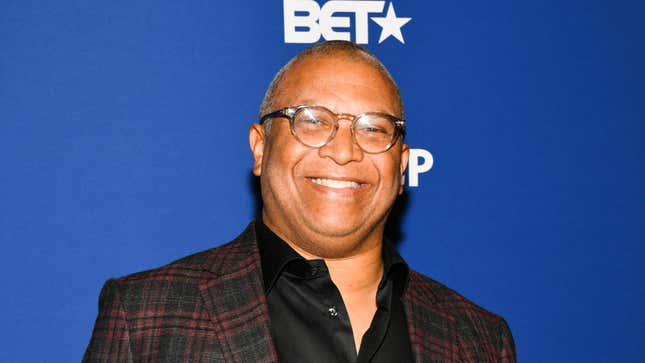
What can you say about the legendary Reginald Hudlin? Well, because I can’t let this blog post start without making a Bebe’s Kids reference (Hudlin wrote the screenplay), I’ll just say, his work doesn’t lie...it multiplies!
Not only does it multiply, it makes history. According to Variety, Hudlin has been named the first-ever Black producer of the Emmys, as he’ll be joining the production team for the biggest night in TV’s telecast. Hudlin will serve as executive producer with show host Jimmy Kimmel and Done+Dusted’s Guy Carrington, David Jammy and Ian Stewart.
“I’m excited to collaborate with this outstanding team as we produce a show that celebrates the best of what we do and reflects this moment in history,” Hudlin said in a statement.
Along with his rack of credits in film and TV, Hudlin specifically isn’t new to this awards ceremony production game. He actually earned an Emmy producing for the Oscars (so now turning to produce the Emmys is a cool full-circle moment) and he’s also been executive producing the NAACP Image Awards for nearly a decade.
Variety offers more deets on Hudlin’s credentials:
Hudlin earned an Oscar best picture nomination in 2013 for Django Unchained; his career has included film and television, and even a stint as a network executive—having served as the first entertainment president for BET. His film credits also include House Party, Boomerang, Great White Hype and Bebe’s Kids, while he was an executive producer of The Boondocks and also wrote and produced the animated series Black Panther, based on the comic book series he wrote.
Hudlin’s latest film is The Black Godfather, currently streaming on Netflix, while he also directed the legal thriller Marshall and produced the Civil War-era historical drama Emperor, which premieres next month. Hudlin’s upcoming Disney Plus film Safety premieres this fall.
As the production team is hammering away at creating what could be a primetime virtual awards show (it hasn’t been confirmed whether it will be in-person or not), I’m sitting here wondering about the Blackness of Hudlin’s participation. After all, Hudlin had a pivotal role in making Black Panther (the character) as Black as he is. As explained in an excerpt of 2018’s Marvel’s Black Panther: A Comicbook Biography, From Stan Lee to Ta-Nehisi Coates, which premiered on The Root:
The first story is “Black to the Future,” in the first-ever Panther annual published in 2008. The plot: in one possible future, Hudlin shows one of the Panther’s and Storm’s sons marrying the U.S. President, the daughter of former Avengers leader Luke Cage! This story, much of it told in flashback, answers an honest, real-world question: how did Wakanda escape being colonized without going to war against the entire Western world? The answer: the Wakandans made a pact with the white European colonial powers: if you don’t make war on Wakanda, Wakandans will turn a blind eye to the Trans-Atlantic slave trade and European colonialism of the rest of Africa.
The story, which balanced Wakanda’s past and possible future, seemed to be a return to the serious European colonization themes of Hudlin’s first story arc, “Who is the Black Panther?” a story which he adapted to that cartoon (and has since been novelized).
The second of Hudlin’s greatest Panther stories is one of the greatest Panther stories ever. It used the idea, first developed by Christopher J. Priest (the Panther’s previous writer and Marvel’s first Black editor), then furthered by Hudlin, that an ancestor Panther met Captain America in Wakanda during World War II!
All that to say, I’m expecting some Blackness at the Emmys. We need some of that Black joy in 2020, especially. The 72nd Primetime Emmy Awards will air Sunday, Sept. 20.

